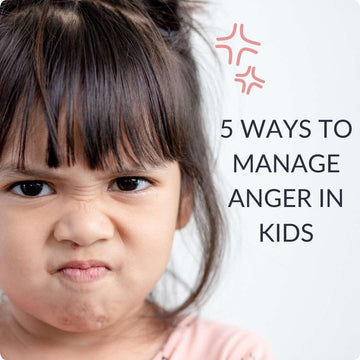Understanding and Supporting Your Child's Emotions
As parents, we want our children to grow up happy, healthy, and emotionally resilient. However, navigating the complex world of emotions can be challenging, especially when it comes to managing anger. In this blog post, we'll explore effective strategies for helping kids manage anger in healthy ways, fostering emotional intelligence and well-being.
Understanding Anger in Children
Anger is a natural and normal emotion that everyone experiences, including children. It's important for parents to recognize that anger is not inherently bad or wrong; rather, it's how we express and manage anger that matters. For kids, anger can manifest in various ways, from tantrums and outbursts to silent withdrawal.
Tips for Helping Kids Manage Anger
-
Encourage Open Communication: Create a safe and supportive environment where your child feels comfortable expressing their feelings. Encourage open communication and active listening, allowing them to verbalize their emotions without fear of judgment.
-
Teach Coping Strategies: Equip your child with healthy coping strategies to manage anger when it arises. This may include deep breathing exercises, counting to ten, or taking a break to cool down. Introduce them to activities like journaling or drawing, which can serve as outlets for processing emotions.
-
Model Positive Behavior: Children learn by example, so it's essential to model healthy ways of managing anger in your own behavior. Demonstrate patience, empathy, and constructive problem-solving techniques, showing your child that it's okay to feel angry and how to handle it appropriately.
-
Create a Calm Environment: Foster a calm and nurturing environment at home by establishing routines, setting clear boundaries, and minimizing stress triggers. Provide your child with a designated safe space where they can retreat when feeling overwhelmed or upset.
-
Use Positive Reinforcement: Recognize and praise your child's efforts to manage their anger effectively. Offer encouragement and positive reinforcement for using coping strategies and expressing emotions in healthy ways, reinforcing their sense of self-confidence and resilience.
Can Some Toys Help In Managing Anger Issues In Children?
Sometimes, expressing anger through play can be a therapeutic outlet for children. Meet Lucifer, the Angry Cat Plush Toy, the cat from Cinderella. With its expressive design and cuddly charm, Lucifer offers a playful way for kids to channel their emotions and engage in imaginative play and makes them acknowledge anger as an emotion. Incorporating toys like Lucifer into your child's playtime routine can help them explore and process complex emotions in a safe and supportive manner right from early childhood. The angry cat stuffed animal design is also available in other products which can be used for kids like the angry cat plush tissue holder, angry cat eye mask and an angry cat pillow.
Conclusion: Nurturing Emotional Well-Being in Children
By understanding and supporting your child's emotions, you can help them develop essential skills for managing anger and navigating life's challenges. By fostering open communication, teaching coping strategies, and modeling positive behavior, you can empower your child to express and manage their emotions in healthy ways. And remember, a little love, patience, and understanding can go a long way in nurturing your child's emotional well-being.






